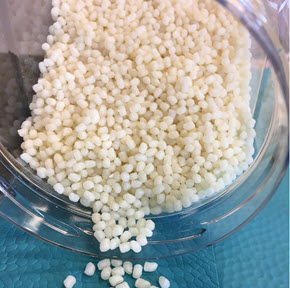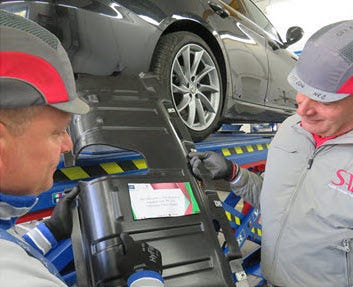Symbio fiber from South Africa’s Sappi has been selected for the European Biobcompo project, which aims to reduce vehicle CO2 emissions by 8% through the replacement of conventional mineral fillers with bio-based fibers.
May 11, 2020

A biocomposite cellulose fiber derived from forests has been selected as the feedstock for development of lightweight biocomposite materials, for the Life Biobcompo project. Symbio fiber was developed by South African pulp and paper company Sappi.
|
Lightweight biocomposite materials to replace traditional materials in automotive components. |
The European Biobcompo project aims to reduce vehicle CO2 emissions by 8% through the replacement of conventional mineral fillers with bio-based fibers, promote the use of more sustainable resources and demonstrate these technologies at industrial scale. The project partners are Italian Tier 1 SAPA Group, Fiat Chrysler Automobiles (FCA) Italy, Centro Ricerche Fiat and the Sòphia High Tech Group.
The biocomposite materials are required to have good thermo-mechanical properties, a high aesthetic value and good dimensional stability. The experience acquired by SAPA on the development of low-density biocomposites for automotive applications, in a previous R&D project, and the cooperation with Sappi have been fundamental for the achievement of the above requirements.
The European Life Biobcompo project brings together the long-standing experience of SAPA and FCA in reducing the impact of motor vehicles on the environment including the Alfa Giulia and Fiat 500X models.
By developing lightweight biocomposite materials to replace traditional materials in automotive components, the project aims to positively impact the mass of vehicle components and thus reduce the total weight of the car, decreasing significantly the total carbon footprint impact of the emissions.
Commenting on the decision Sappi CEO Steve Binnie said: “Biomaterials and biochemicals are integral to Sappi’s strategy of extracting maximum value from wood fiber, our natural and renewable resource. We have taken a significant step towards generating meaningful revenue from this new business segment.”
According to Roberto Fedeli, Managing Director and General Manager of Centro Ricerche Fiat (CRF), “I believe that using new materials—lighter, coming from renewable sources and making use of eco-design, i.e. designing a vehicle thinking about the environment in all its aspects, from production to use and final disposal—should represent the development model we must pursue in the coming years.”
Louis Kruyshaar, EVP for Sappi Biotech, explained: “Sappi Symbio materials deliver the perfect solution that allows freedom of design, high quality products, very low odor and low emissions with a high sustainable agenda. With a haptic feedback, Symbio balances rigidity and lightweighting to deliver top-notch composites suitable for the new low emission challenges of the automotive world.”
About the Author(s)
You May Also Like





